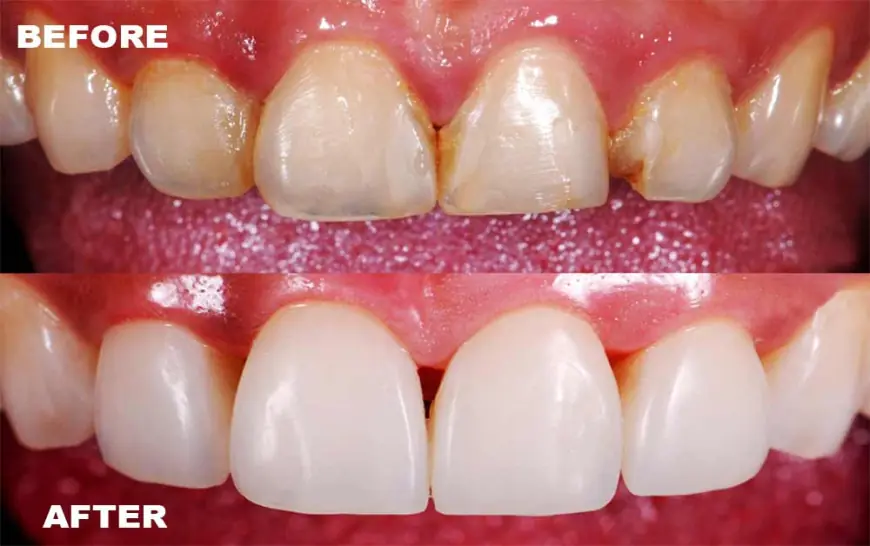How Routine Dental Care Protects Your Smile for Life
Preventive dentistry keeps your smile healthy with regular cleanings, exams, and proactive care. Discover how to protect your teeth and avoid serious issues.

Good oral health starts with consistent habits and regular visits to your dentist. Preventive dentistry focuses on stopping dental issues before they happen. This includes daily oral hygiene, professional cleanings, and routine exams. By catching problems early, you avoid costly and painful treatments later. A proactive approach helps you maintain a bright, healthy smile. Investing time in prevention now leads to fewer dental concerns in the future.
Key Components of Preventive Dental Care
Preventive care combines both at-home practices and professional services. Brushing and flossing daily remove plaque and food particles. Regular dental visits include cleanings, fluoride treatments, and exams. Sealants offer additional protection for molars. These steps reduce the risk of cavities and gum disease. By incorporating these habits, you protect your teeth and gums. This routine care helps ensure small problems don’t become major concerns.
Benefits of Regular Cleanings and Exams
Professional cleanings and exams are essential for maintaining oral health. Dentists remove plaque and tartar buildup during cleanings. Exams help detect early signs of decay, gum disease, or other issues. Early detection makes treatment simpler and less expensive. These visits also address concerns like bad breath and tooth sensitivity. Regular cleanings keep your teeth looking bright and healthy. Including these services in your dental routine supports long-term oral health.
Fluoride Treatments for Stronger Teeth
Fluoride helps protect and strengthen tooth enamel. Dentists often provide fluoride treatments during routine visits. This process is quick, painless, and effective in preventing decay. Fluoride treatments repair early damage and shield teeth from plaque acids. Drinking fluoridated water also supports oral health. Both children and adults benefit from fluoride. Incorporating fluoride treatments into your dental care routine helps maintain strong, healthy teeth for years to come.
Sealants Add Extra Protection
Dental sealants protect molars from decay by sealing out food and bacteria. They are especially helpful for children, who are more prone to cavities. However, adults can benefit from sealants too. The application process is quick, simple, and painless. Sealants last several years, providing long-term protection. Combining sealants with good hygiene practices boosts your defense against cavities. This preventive step is a valuable addition to your oral care routine.
The Role of Early Detection in Dental Health
Catching dental problems early is essential for avoiding more serious issues. Routine exams and X-rays help identify cavities, gum disease, and infections. Early detection makes treatment easier and less costly. It also helps prevent pain and complications. Dentists use exams to monitor changes in your oral health. Including early detection in your preventive dentistry plan ensures long-term protection. Staying proactive helps you maintain a healthy, confident smile.
Maintaining Healthy Gums
Healthy gums support strong teeth and overall oral health. Gum disease begins with gingivitis, causing red, swollen, or bleeding gums. If left untreated, it can progress to periodontitis, which leads to tooth loss. Regular brushing, flossing, and professional cleanings prevent gum disease. These habits remove plaque and bacteria that irritate gums. Focusing on gum health helps avoid serious dental problems. Healthy gums are key to a healthy mouth and smile.
Nutrition’s Impact on Oral Health
A balanced diet plays an essential role in oral health. Foods rich in calcium, like dairy products, strengthen teeth. Vitamin C supports gum health and prevents infections. Reducing sugary snacks and drinks lowers the risk of cavities. Drinking water helps rinse away food particles and bacteria. Crunchy fruits and vegetables, such as apples and carrots, help clean teeth naturally. Proper nutrition promotes strong teeth and healthy gums, contributing to a confident smile.
The Connection Between Oral and Overall Health
Your oral health affects your entire body. Poor dental care can lead to infections that spread to other organs. Gum disease is linked to heart disease, diabetes, and respiratory issues. Bacteria from your mouth can enter your bloodstream and cause health complications. Practicing preventive dentistry helps reduce these risks. Regular dental check-ups and cleanings protect both your oral and overall health. Taking care of your teeth benefits your whole body.
Tips for Effective At-Home Oral Care
Maintaining good oral hygiene at home is crucial for preventing dental problems. Brush your teeth twice a day with fluoride toothpaste. Floss daily to remove plaque between teeth and below the gumline. Replace your toothbrush every three months or sooner if the bristles fray. Use mouthwash to reduce bacteria and freshen your breath. Avoid sugary foods and drinks to protect your teeth. Combine these habits with professional dental care for the best results.
Stress Management for Better Oral Health
Stress can harm your oral health by causing teeth grinding and jaw clenching. These habits lead to tooth damage and jaw pain. Stress also weakens your immune system, increasing the risk of gum disease. Managing stress through exercise, meditation, and relaxation techniques helps protect your teeth. Regular dental visits identify stress-related problems early. Including stress management in your oral care routine supports healthier teeth and gums.
Customized Dental Plans for Individual Needs
Everyone’s dental needs are different. Dentists create personalized plans to address your specific concerns. These plans may include more frequent cleanings, fluoride treatments, or sealants. Your dentist will adjust your plan as your oral health changes. Personalized care ensures you receive the best treatment for your needs. A tailored approach works best when considering each person’s unique situation. Customized plans help maintain a healthy, confident smile.
Conclusion
Investing in preventive dentistry helps protect your teeth and gums for life. Regular cleanings, exams, and good habits prevent dental problems before they start. This approach saves you time, money, and discomfort. By being proactive, you maintain a healthy, confident smile. Routine care, combined with a dentist deep cleaning, reduces the risk of cavities and gum disease. Prioritizing preventive care leads to long-term oral health and overall well-being.
What's Your Reaction?
 Like
0
Like
0
 Dislike
0
Dislike
0
 Love
0
Love
0
 Funny
0
Funny
0
 Angry
0
Angry
0
 Sad
0
Sad
0
 Wow
0
Wow
0




















































